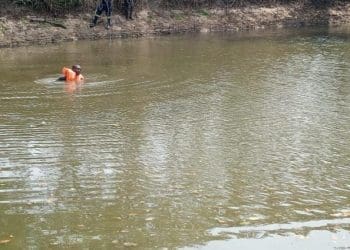The Ghana Tuna Association (GTA), and the Ghana Industrial Trawlers Association, representing the Joint Industrial Fisheries Sector (JIFS), have appealed to the government to address their concerns regarding the adverse impact of the new Fisheries Bill on their businesses.
According to them, the Bill jointly sponsored by the Ministry of Fisheries and Aquaculture Development and the Fisheries Commission and passed by Parliament and awaiting presidential assent, could expose offshore personnel and Ghanaian vessels to criminal bandits and terrorist attacks on high seas and further strangulate the fisheries sector, leading to its imminent collapse.
They called on President John Dramani Mahama and the Speaker of Parliament, Alban Sumana Bagbin, to reconsider the passage of the new Fisheries Bill.
According to them, a specific provision in the bill threatened to inflict irreparable harm on the industrial fisheries sector—an outcome they warned would cripple their operations and negatively impact national food security, job creation, and the growth of Ghana’s blue economy.
A petition, signed by Frank K. Aihoon, President of GTA, and Stephen Adjokatcher Ag. President GITA and Richster Nii Amarh Amarfio, Vice-President- NAFAG and addressed President John Dramani Mahama and Speaker of Parliament Rt. Hon. Alban Sumana Kingsford Bagbin, GTA and GITA called for urgent government intervention and urged that the President withhold assent until their concerns were addressed.
At the heart of their petition is a clause that seeks to extend Ghana’s Inshore Exclusion Zone (IEZ) from 6 to 12 nautical miles.
According to them, this extension would bar their vessels from accessing areas critical to their operations, despite decades of lawful activity within those waters.
“Our vessels are Ghanaian-flagged, meaning they are artificial citizens of Ghana,” the Association emphasised.
“By legislating us out of the 12-nautical-mile territorial sea, it’s as if we are being ostracised from our own country.”
The group further stated that Ghana’s current IEZ—defined as either the 30-meter depth contour or 6 nautical miles, whichever is further—is already one of the most restrictive in the West African region.
“ In contrast, countries like Nigeria, Benin, Togo, Côte d’Ivoire, and Liberia maintain IEZs of only 5 to 6 nautical miles”.
The GTA pointed out that during the last parliamentary stakeholder consultation, there was agreement on three key issues, thus:The current IEZ provision (6 nautical miles or 30-meter depth contour) is problematic; The IEZ should be fixed at 6 nautical miles only; and any future expansion should be supported by new scientific studies.
They challenged the rationale that illegal fishing activities by some trawl vessels justify such a legislative change, warning that anecdotal or enforcement issues should not be used as a scientific basis to penalise the entire industrial sector.
“All our vessels—tuna and trawl—are equipped with Vessel Monitoring Systems (VMS) that track movement and activity in real time,” the Association stated. “The Ghana Maritime Authority and Ghana Navy both have 24-hour surveillance, and we also maintain 100% human observer coverage on board.”
The group emphasised that unless there was transparent, independently verified bathymetric and ecological data, any extension of the IEZ to 12 nautical miles would lack scientific legitimacy and could cause irreversible harm to the sector.
They warned that the proposed expansion risks undermining Ghana’s commitment to sustainable fisheries management, international investment, and coastal livelihoods, particularly in a time when collaboration and transparency are essential to address climate change and ocean degradation.
“The industrial fisheries sector now awaits the President’s next steps, hopeful that their petition will prompt a reconsideration of the bill in the national interest”.












